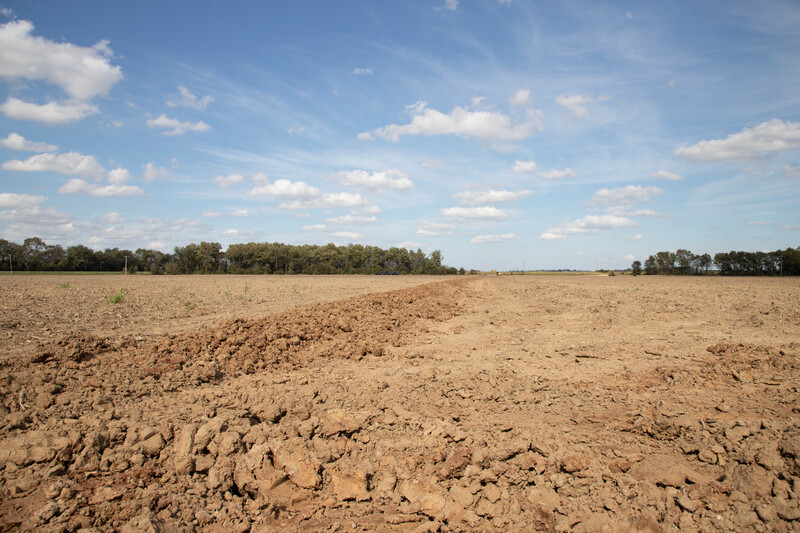Water
May 6, 2025 / 4 minute read
Rain or shine, drought or deluge, ADS tile has you covered

The Old Farmer’s Almanac predicts that spring 2025 will be “warmer and wetter” than usual for most of the U.S., with an active severe weather season expected — news that will likely bring grumbles among farmers. Soggy spring weather can bring planting delays, soil erosion and may lead to lower yields if fields don’t dry out in time.
Meanwhile, farmers around the U.S. are just coming off of a drought that reached record levels in fall 2024. Of the lower 48 states, 45.3% were in drought and 73.2% were abnormally dry. The age-old question remains — how do you maximize crop yields through drought, deluge, severe weather and everything in between?
Weathering wet seasons
Rain makes corn, and corn makes … well, you know the song. But during uncharacteristically wet seasons, ongoing field saturation can cause plenty of problems, including increased weed pressure, root rot, shallow roots and more. That’s where drainage tile comes in.
“In untiled ground, crops that are planted during a wet period will develop what we call a shallow root profile,” said Willie Ubben, owner of Ubben Tiling in Stratford, Iowa. “That means the roots stay up where the moisture is, towards the surface. As summer goes on, the ground dries out faster than the roots can grow, and the crop isn’t able to draw in the nutrients they need.”
Drainage tile helps plants develop a stronger root profile, which contributes to higher yields. And the yields speak for themselves — Ubben’s customers typically yield 20-30 more bushels per acre per year than their harvests prior to tile installation.
Another benefit — after a big rain event, farmers with drainage tile in their fields can get back into the fields earlier than their untiled neighbors.
“It’s much easier for farmers to get in and out of the field when their farm is able to properly drain,” said Tad Reutzel, owner of Reutzel Excavating in Burt, Iowa. “We usually see them get back to work about two-to-three days quicker than a non-tiled farm.”
Tiled ground also experiences less soil erosion. Drainage tile shifts the path of water and releases it to an outlet on or off your property, preventing runoff and erosion caused by excess water.
Drainage lessens drought impacts
As stewards of the land, farmers are always looking for ways to increase the overall value of their property. Investing in drainage tile is one of the best ways to ensure their farms have proper water management systems and can start their planting season on their own terms.
A common misconception of drainage tile is that it hurts your crops more than it helps when drought conditions are present. However, drainage tile only removes excess water, not the water the crops need to properly develop.
“What people don't realize is that during dry years, tile still benefits the crops,” said Cole Rath, an ADS territory sales manager. “Tile helps lower the water table and encourages the roots to get deeper into the soil profile where adequate soil moisture is more prevalent.”
With or without rain, drainage tile has the benefits that help farmers year-round, rain or shine, drought or deluge.
“Measuring success for a farmer is really all tied back to the spring planning season,” said Corley Abel, owner of Abel Drainage Tile in Greenville, Iowa. “Getting that seed in the ground quicker, earlier and establishing the root as deep as it can as, quick as it can, is essential to the crop establishing a full moisture profile in the later growing season. Our customers with tile definitely see a yield advantage.”
Farmers know they can’t control the weather. But installing ADS tile brings them one step closer to controlling field conditions and ensuring their crops stay healthy, regardless of the forecast.
“We’ve had farmers tell us they can see in the field right where we stopped tiling at because of the health of the crop,” Ubben said.
By removing excess water, reducing runoff, preventing soil erosion, and enabling plants to have deeper roots, farmers are better equipped to fight the elements and ensure the health of their crops. Contact your ADS rep to discuss your water drainage needs.
